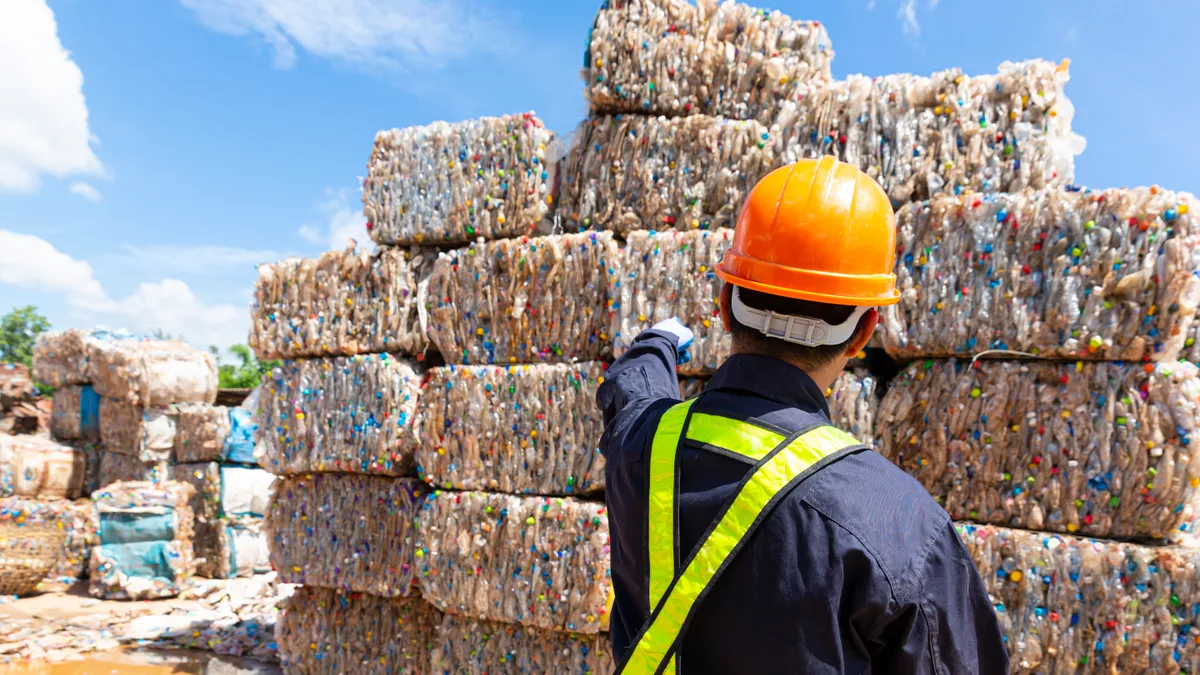Dive Brief:
- Thailand will ban imports of plastic scrap by 2025, in an effort to stop the country from being “a dump site for plastic waste,” Varawut Silpa-archa, Thailand’s natural resources and environment minister, told the Bangkok Post.
- The first phase of the ban, starting in 2023, will limit the amount of imported plastic scrap based on production capacities at the plants that process the material. In 2024, only half of imports will be allowed, and the total ban will start in 2025, the Bangkok Post reported.
- Thailand’s decision follows the trend of other Southeast Asian countries, such as Vietnam and Malaysia, that banned plastic scrap imports in the wake of China’s National Sword initiative. Activists have recently called for the United States to do more to curb exports that could cause environmental harm to other countries.
Dive Insight:
Thailand’s government has been talking about a ban since 2020 and has made several steps toward controlling plastic waste in recent years, including banning plastic bags in 2020.
The ban, which will take place in phases over the next three years, likely won’t have a big impact on U.S. plastic scrap exports because Thailand is not a major destination for such material, according to the Institute of Scrap Recycling Industries.
The U.S. is the second-biggest exporter of plastic scrap to Thailand after Japan. However, the U.S. sent just under 4,700 metric tons of plastic scrap in 2021, a fraction of its overall exports to other countries in the world, said Joe Pickard, chief economist at ISRI.
U.S. exports of plastic scrap to Thailand have decreased steadily since at least 2018, when it sent about 106,852 metric tons there, he added.
“This likely wouldn’t have a significant impact on our plastic recycling exporters, because there's already been such a sharp drop off in the material that we're sending to Thailand,” he said.
The United States sent a significant amount of plastic scrap to China until 2018, when China’s import ban prompted the U.S. to start focusing on domestic markets. The U.S. has also significantly curbed its exports to countries like Malaysia and Vietnam, which have enacted their own plastic bans in recent years, citing environmental concerns.
Today, the top two international markets for U.S. plastic scrap are Canada and Mexico, a trend of regional trading Pickard expects to continue.
International diplomacy could play a future role in where U.S. exports plastic scrap, said Fred Fischer, ISRI’s assistant vice president of international trade.
Some U.S. lawmakers and activists are calling for the Biden administration to crack down even more on plastic scrap shipments — especially the export of low-value scrap plastic to developing countries — by ratifying the Basel Convention. The U.S. is one of the few countries that is not a party to the international agreement, which aims to ensure certain waste is handled responsibly. A recent amendment added some types of mixed and contaminated plastic shipments to its control procedure as a move to curb plastic pollution. As of Jan. 1, 2021, countries party to the Basel Convention cannot trade these materials without a special arrangement.
Separately, Thailand was named in a now-rescinded 2015 report by the Ocean Conservancy as one of the top four countries in the world with the most ocean plastic pollution. The group recently said the report’s framing did not accurately discuss the role developed nations, especially the United States, have had on ocean plastic pollution due in part to shipping.
Thailand is among the countries signed on to a United Nations treaty to end plastic pollution, a legally binding agreement signed in March and that is scheduled to be ratified in 2024 after a UN working group hashes out both binding and voluntary approaches to the issue.











